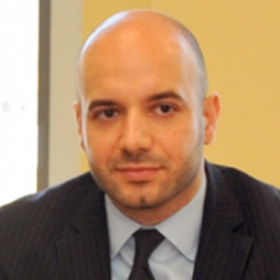
EWI Event at the UN Focuses on Water Partnership and Dialogue
More than 150 people packed the room for “Ways to Integrate Efforts in Furthering Water Dialogue and Cooperation,” a UN side-event hosted by the EastWest Institute,the Permanent Mission of Tajikistan to the UN, UN Water and the Water Friends Group on Friday, February 22, at the UN Headquarters in New York City. This event underlined UNGA resolution 65/154 declaring 2013 as the International Year of Water Cooperation (IYWC).
Zafar Adeel, director of the United Nations University, Institute for Water, Environment and Health, moderated a distinguished panel of experts who helped identify and address global action points for water dialogue and partnerships.
“The time for silo thinking is over,” Ursula Schaeffer-Preuss, chair of the Global Water Partnership, said in her remarks which focused on sustainable approaches. She urged nations to think outside of the traditional ways of tackling water management issues. “This is a global issue that cannot be addressed from one vantage point.”
Olcay Ünver, coordinator of the United Nations World Water Assessment Programme of the UN-Water and director of the UNESCO Programme Office on Global Water Assessment, echoed that sentiment. “Many of the challenges to water security and management come from other sectors and water managers are seldom consulted when dealing with these challenges,” said Ünver.
“Water must become part of the equation,” he continued, stressing that water impacts a huge number of issues in any nation—including public health, jobs, energy, food, sustainability and many women’s issues.
Sanjay Pahuja, senior water resources specialist at the World Bank, stressed the importance of education as key to water cooperation, illustrating his point with an example of Indian farmers, who moderated their own water use after learning pertinent elements of hydrogeology.
“Let the farmers be the scientists,” Pahuja stated, as he elaborated on this bottom-up approach.

Panelists address the crowd at the UN.
He explained further that these farmers did not have much formal education, yet they were able to develop a proficiency that increased their profits and positively impacted their standard of living. “This is how we can alter the course of people’s lives,” Pahuja added.
An additional panelist, Christian Holmes, USAID’s Global Water coordinator, stressed the importance of data exchange as a key catalyst to change. “Bilateral and regional development provide replicable opportunities,” he said.
EWI President John Mroz emphasized that water is key to nation building and that nations must act on it. “We are all aware of this. Now, it’s no longer enough to name the ball, now we have to move the ball down the playing field,” he urged event participants.
The International Year of Water Cooperation is intended to unify all efforts, both undertaken and planned by the UN system, other international and regional organizations, governments, civil society and entrepreneurs, in order to increase people's awareness of freshwater-related problems and ways to resolve them. This follows the 2012 UNGA adopted resolution (A/Res/67/204) on the implementation of the IYWC through convening a series of global high-level events.

